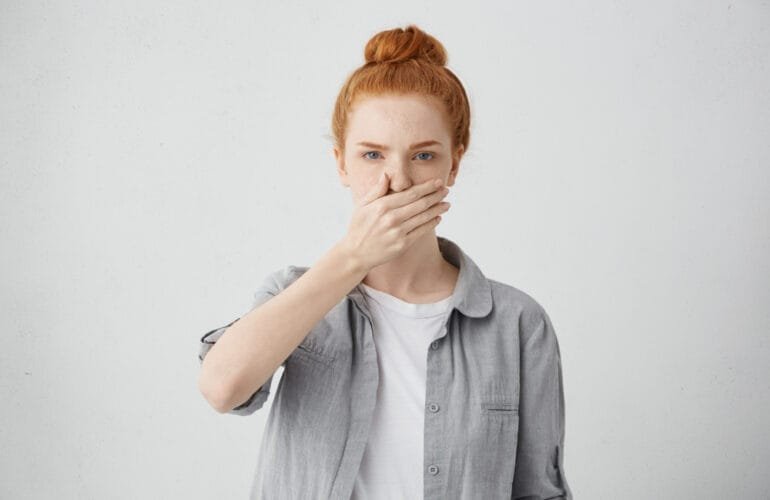If you experience symptoms like sweaty palms or a racing heartbeat before a dental visit, you may be dealing with dental anxiety, one of the most common fears among patients. Fear of the Dentist? How to Talk to Your Dentist About Your Anxieties is a topic that affects millions around the world. Dental anxiety is common yet often overlooked and it can significantly impact both your oral health and your overall well-being.
Understanding the root causes of fear of the dentist can transform your dental visits and help you regain confidence. This guide explores the causes of dental anxiety, its signs, its effects on your health, and practical strategies to help you take back control of your oral care journey.
What Causes Dental Anxiety?
Dental anxiety can come from emotional, sensory, and past experiences that shape how patients feel about dental care. Instead, it often develops from emotional, sensory, and situational triggers that build over time.
Emotional Triggers
Emotional triggers are often the most powerful drivers of dental fear. Many people associate dental visits with embarrassment about their teeth, shame regarding their oral habits, or fear of being judged.
Some emotional triggers include:
- Fear of losing control during a procedure
- Feeling trapped in the dental chair
- Anxiety about disappointing the dentist
- Generalized anxiety disorder that spikes during medical appointments
These feelings can intensify long before the appointment begins, creating a cycle of avoidance and increased fear.
Sensory Triggers
The dental environment is filled with sensory stimuli that can be overwhelming:
- The high-pitched sound of the drill
- The sensation of metal instruments
- The smell of antiseptics
- Bright overhead lights
For many, these sensory cues become associated with discomfort or fear. Even hearing dental tools in the distance can trigger immediate anxiety.
Past Experiences
Past negative experiences are one of the strongest triggers of fear of the dentist, especially when those memories come from childhood. Painful procedures, rough communication, or feeling rushed or unheard can all contribute to lifelong anxiety.
Unfortunately, one bad experience can overshadow many positive ones. This contributes to avoidance, which then leads to more severe dental problems and even greater fear.
Fear of Pain
Many people fear dental procedures because they anticipate pain even when modern dentistry has dramatically improved comfort levels. Outdated memories, exaggerated stories, or cultural beliefs may fuel the belief that dental procedures are inherently painful.
But here’s the truth: most procedures today are minimally painful, and many are completely painless.
How Dental Fear Affects Your Oral and General Health
Avoiding dental visits due to fear of the dentist can lead to long-term oral health problems. When you skip regular cleanings or delay treatment because of anxiety, you may develop:
- Cavities
- Gum disease
- Tooth infections
- Tooth loss
These conditions don’t just affect your mouth they can influence your whole body. Research links poor oral health to heart disease, diabetes complications, respiratory issues, and systemic inflammation.
Dental fear can also heighten feelings of guilt and embarrassment, which leads to even more avoidance. Recognizing this pattern is essential for breaking the cycle.
Signs You May Have Dental Anxiety
Common symptoms of dental anxiety include physical and emotional reactions such as:
- Difficulty sleeping the night before your appointment
- Feeling physically ill at the thought of visiting the dentist
- Increased heart rate or sweating while waiting in the lobby
- Panic attacks during dental exams
- Crying, shaking, or feeling faint in the dental chair
- Avoiding dental visits for years
These reactions are completely valid. Identifying them is the first step toward receiving the support you need.

Why Communication With Your Dentist Helps Reduce Anxiety
Talking openly with your dentist about your fears is one of the most powerful tools for managing dental anxiety. When your dentist understands what triggers your anxiety, they can adapt their approach to suit your comfort level.
Effective communication can:
- Build trust
- Increase your sense of control
- Reduce uncertainty
- Help the dentist tailor a personalized anxiety-friendly treatment plan
Dentists are trained to work with anxious patients. Many appreciate honesty because it helps them provide safer, more compassionate care.
How to Talk to Your Dentist About Your Fears
So how exactly do you begin the conversation?
Phrases You Can Use
Here are simple statements to help you communicate clearly:
- “I feel very anxious about dental visits. Could we take things slowly today?”
- “The sound of the drill triggers anxiety for me. Can you warn me before starting?”
- “I need breaks during the procedure. Can we use a signal if I feel overwhelmed?”
- “I had a bad experience in the past, and I’m afraid it will happen again.”
- “Can you explain each step before you do it?”
These phrases create transparency and allow your dentist to adjust accordingly.
Information They Need From You
To help you better, your dentist may need to know:
- Your specific fears
- Past traumatic dental experiences
- Whether you have panic attacks
- If you need breaks during treatment
- What helps calm you (music, deep breathing, slower explanations)
- Any medical conditions or anxiety disorders
The more your dentist knows, the more effectively they can support you.
What Dentists Can Do to Support Anxious Patients
Dentists have many tools and strategies to make your visit more comfortable:
- Gentle communication and step-by-step explanations
- Shorter and more frequent appointments
- Using numbing gels and improved anesthesia techniques
- Providing noise-canceling headphones
- Offering distraction tools like movies or music
- Sedation options (nitrous oxide, oral sedation, IV sedation)
- Creating a calm, patient-centered environment
Modern dentistry is increasingly designed with anxious patients in mind.
At-Home Techniques to Reduce Dental Anxiety Before Your Visit
If you struggle with dental anxiety, there are several techniques you can use at home before your appointment to feel calmer.
- Deep breathing exercises
- Mindfulness or meditation apps
- Listening to relaxing music
- Practicing positive visualization
- Journaling your fears
- Using a weighted blanket on the day of the appointment
- Reading about what to expect during your procedure
Preparing yourself mentally can make a big difference once you’re actually in the dental chair.
When You May Need Professional Help (CBT/Therapists)
If your dental anxiety is severe or prevents you from receiving necessary treatment, speaking with a therapist can be life-changing.
Cognitive Behavioral Therapy (CBT) is one of the most effective treatments for dental-related fear. It helps you:
- Identify triggers
- Reframe negative thoughts
- Change fear-based behaviors
- Build confidence through gradual exposure
Some therapists even specialize in phobias and medical anxiety. Combining therapy with supportive dental care can create lasting results.
Benefits of Overcoming Dental Anxiety
Overcoming fear of the dentist can dramatically improve both your dental health and your emotional well-being.
- Better oral health
- Lower risk of chronic disease
- Increased confidence in your smile
- Shorter, easier dental appointments
- Improved overall well-being
- Reduced long-term treatment costs
- More positive and empowering experiences
Overcoming dental anxiety can improve your quality of life in ways you may not expect.

FAQs About Dental Anxiety
1. Is dental anxiety normal?
Yes, dental anxiety is very common. Millions of people experience fear of the dentist, and modern dental clinics are trained to support anxious patients., and dentists are trained to help patients manage it.
2. What if I panic during a dental procedure?
Tell your dentist ahead of time. They can use stop-signals, take breaks, and adjust their approach to keep you comfortable.
3. Can sedation help with severe dental fear?
Absolutely. Nitrous oxide, oral sedatives, and IV sedation can make procedures easier and more comfortable.
4. How do I choose a dentist who understands anxiety?
Look for clinics that advertise anxiety-friendly care or read online reviews from other anxious patients.
5. Are there natural ways to reduce dental fear?
Yes breathing techniques, meditation, aromatherapy, and calming music can all help.
6. Can dental anxiety get worse over time?
Yes, especially if you avoid regular checkups. Early communication and treatment can prevent worsening fear.
Disclaimer: This article is for general informational purposes only and should not be relied upon as medical or dental advice. Always consult your dentist or healthcare professional for personalised guidance.
References
- American Dental Association (ADA)
- National Institute of Dental and Craniofacial Research
- Harvard Health Publishing




